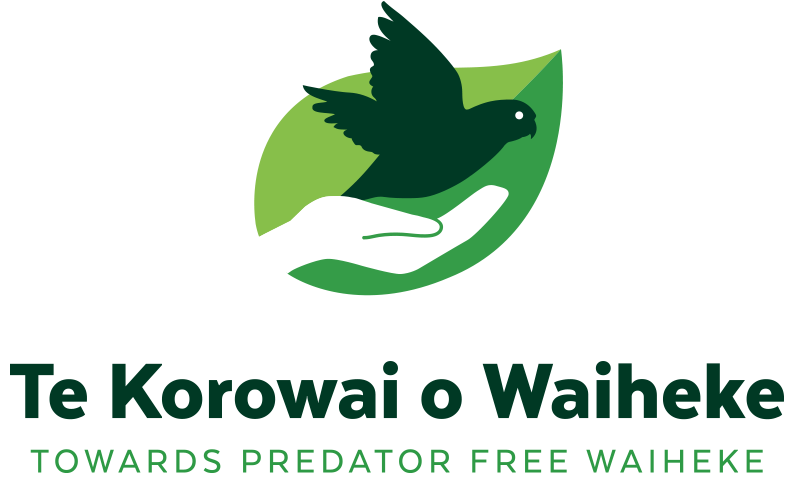Rat pilot adaptations due to Omicron
Faced with disruptions associated with the Omicron outbreak in New Zealand, Te Korowai o Waiheke has taken technical advice to modify the rat eradication pilot beginning on May 2nd.
In a predator eradication, any gaps in device service frequency, or holes in the network, risks the failure of the programme. With expected staff absenteeism from catching Covid-19 or needing to self-isolate, the successful delivery of the current rat eradication pilot is jeopardised.
In its original design, over 8000 bait stations and traps were to be serviced every week. With staff off sick or self-isolating, this will not be possible, therefore rats could regain a stronghold in an area not being serviced.
“Omicron is now starting to challenge all industries and sectors,” says Project Director Mary Frankham. “Adapting the plan has been necessary and still allows for excellent progress towards the island-wide rat eradication goal.
“Waiheke wants this so much - there’s incredible support from more than 1200 people who signed up to participate, as well as those outside the pilot area who have asked how they can be involved.”
How will it look?
There will be specific operational trials conducted both this and next year within the original rat pilot area. The original rat pilot programme was designed to answer questions on how to eradicate rats from Waiheke, and we remain focused on that ultimate goal. Working together with residents and businesses we will test and learn together the best tools and methods to successfully remove rats.
Support for the rat eradication pilot to date has been extraordinary. The change in plan is only due to the change in circumstances - in response to the disruption from Omicron - it's not something that would be chosen otherwise. The team would like to thank all the people that already signed up to take part and key stakeholders, Iwi and community group leaders for their ongoing support. We’d also like to acknowledge the fantastic and committed volunteers and backyard rat trappers active across the whole island.
We look forward to continuing the mahi together towards a predator free Waiheke Island.

